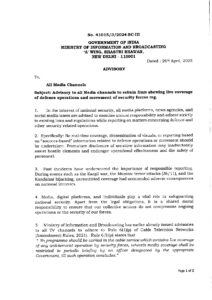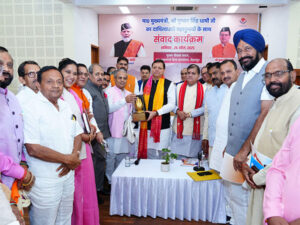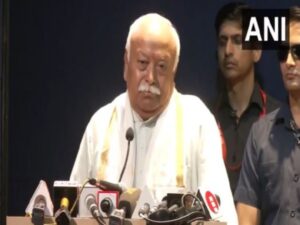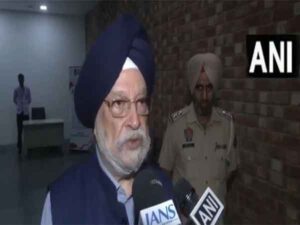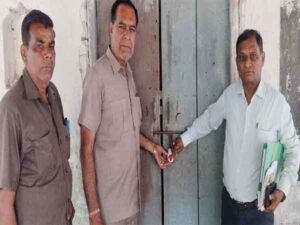HC dismisses plea of Cong MLA’s son against ED arrest
New Delhi, Sep 8 (PTI) The Punjab and Haryana High Court has dismissed a petition seeking quashing of criminal proceedings and arrest of a Haryana Congress MLA’s son by the ED, citing 10 judicial pronouncements made by the Supreme Court on these issues.
The Court of Judge Mahabir Singh Sindhu in Chandigarh on August 27 held that prima facie, the offence of money laundering was “clearly made out” against the petitioner Sikandar Singh Chokker and that his plea was “nothing but complete misuse of the process of Court as well as law.”
Sikandar Chokker is the son of Dharam Singh Chokker, sitting Congress MLA from the Samalkha (Panipat district) seat of Haryana. Dharam Singh Chokker has been recently given a ticket by his party for contesting the forthcoming assembly polls in the state from the same seat.
Sikandar Chokker was arrested by the Enforcement Directorate (ED) on April 30 from a hotel in Haridwar, Uttarakhand on the basis of a special PMLA court issued arrest warrant against him in a money laundering case related to alleged duping of homebuyers funds by a company (Mahira group) “beneficially owned” by him.
He (Sikandar) appeared for questioning before the ED initially but did not depose later despite repeated summons and a non-bailable warrant issued by a special Prevention of Money Laundering Act (PMLA) court in Gurugram on the request of the ED.
Similar warrants were issued against Dharam Singh Chokker and his another son Vikas Chokker, being co-accused in the case.
Dharam Singh Chokker also deposed once before the ED but after a special leave petition (SLP) filed by him was dismissed by the Supreme Court in this case, he is “absconding”.
Sikandar Chokker filed a petition before the HC under section 482 of the CrPC to set aside the arrest warrant issued by the court against him, his arrest and the remand given to the ED by the court, essentially reasoning that the “grounds of arrest” and “reasons to believe” were not supplied to him at the right time in apparent breach of section 19 of the PMLA.
“There is no quarrel that object and purpose of section 482 of the Code (CrPC) is to secure the ends of justice and not to frustrate the same….in the present case, huge proceeds of crime have been identified, and prima facie, the offence of money laundering is clearly made out against the petitioner.
“Petitioner is the beneficial owner of Mahira Group of companies as well as other shell companies and has been found involved in money laundering; thus present petition is nothing but complete misuse of the process of Court as well as law,” the HC said.
It said about 1,500 prospective home buyers invested their hard earned money with the hope that they will get shelter, but the entire money of Rs 363 crore was “misappropriated and laundered” by the petitioner (Sikandar) in conspiracy with other co-accused.
The court, however, underlined that the these observations were “not to be” construed as an expression of opinion on merits of the case but only confined to this petition.
The HC gave its order to reject Sikandar Chokker’s plea after discussing as many as 10 judicial pronouncements made by the Supreme Court on the subject of issuance of arrest warrants apart from apprehensions made by the Enforcement Directorate (ED) in a money laundering cases, including the one pertaining to Delhi Chief Minister Arvind Kejriwal.
Citing Raghuvansh Dewanchand Bhasin’s case which lays guidelines for issuance and execution of NBW, the HC said, “meticulous compliance of the provisions (section 78 and 79 of CrPC) was made while executing the arrest warrant with the help of local police” in this case.
In the context of the Pankaj Bansal and Kejriwal case, where it was ruled that the grounds of arrest have to be supplied to the arrestee and reasons to believe that person is guilty of the offence have to be recorded, the HC order said both these directions were “duly followed” in this case.
In the case of Pranav Gupta, where it was observed by the court that in pursuance of summons ED officials cannot put restraint on the liberty of the accused, the HC said Sikandar Chokker was apprehended in pursuance of non-bailable warrants legally issued by the special court.
The order also noted that Sikandar Chokker tried to escape on the pretext of urinating while he was being brought from Uttarakhand to the Gurugram zonal office of the ED in April.
It said, this incident apart from the fact that he had four other FIRs against him, show that the petitioner has “no respect” for the rule of law and that he made the process of law a “mockery”.
It noted that Sikandar Chokker “used” home buyers’ funds to book rooms at a five-star hotel in Delhi between February 22 and March 13 last year for a family wedding.
The HC said provisions section 19 of the PMLA were complied “in letter and spirit” in this case.

